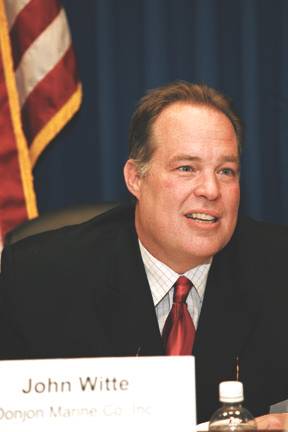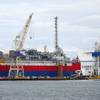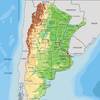Insights: John Witte Jr., American Salvage Association
What are your thoughts on the recent collision that occurred on the that resulted in hundreds of thousands of gallons of fuel oil to spill and the requisite closure?
JW: The is a very busy waterway. While the US Coast Guard and local authorities make every effort to manage the waterway in a safe and efficient manner, there are times that accidents do in fact occur. The inland towing industry has one of the very best safety and environmental records, so this was one of these situations. While this incident had a significant impact on the environment as well as the local economy due to the shut down of the Mississippi River, two American Salvage Association (ASA) member salvors teamed up to not only remove the remaining cargo from the barge but to then safely and efficiently remove the vessel itself without further incident. Unfortunately, marine accidents happen but as is the case with most of the major marine causalities that occur in , ASA salvors are ready, willing and able to effectively and efficiently respond to any marine related incident that may occur. Without a strong US-based salvage presence, our waterways and environment and marine habitats are at risk. This response is another example of the professionalism of ASA member salvors.
In your December 2007 MarineNews column, you said salvors remain the ultimate environmentalists. What needs to be done to avoid high profile casualties and to further protect the environment?
JW: As long as there is a marine industry there can be casualties. This is one of the unfortunate realities of marine life. Weather, mechanical failures and human error will still result in vessel casualties. This being said, there is no question that the number of casualties that occur throughout the world have been in a steady decline over the last 10 to 15 years. There are certainly reasons for this. Laws and regulations, such as OPA-90 here in the US, which govern the safe operation of vessels throughout the world, have become more prevalent and obligate an owner and/or operator of vessels throughout the world to have appropriate insurance, up to date vessel inspection certificates and better trained crews as well as other related efforts to ensure a vessel's safe operation. Further, in the event of casualty, civil penalties and sometimes criminal charges may be brought against an owner/operator which provides further incentives to operate as safely as possible. As marine related technologies, crew training, early warning radars and like advances in the safe operation of vessels in the marine environment continue to improve, casualties will continue to decrease, but will not be eliminated. Therefore, worldwide, the marine salvage industry is and will remain an important component in the protection of our waterways and environment as a whole.
What regulations need to be addressed in order to ensure security, safety and preparedness for the salvage community?
JW: From the perspective of the American Salvage Association, the most important regulation that is, hopefully, in the final stages of approval and implementation are the pending modifications to OPA-90. When originally passed in 1990, the Oil Pollution Act of 1990 (OPA-90) was more weighted toward the cleanup of pollutants once they left the casualty rather than ensuring a safe and efficient salvage of the stricken vessel. There is no question that the best way to protect the environment is to keep the oil in the ship and remove the source of the pollution or better yet, the vessel itself. OPA-90 contained language that envisioned the need to better define the marine salvage components of OPA-90 to lay out what is expected of a professional salvor and also included a timetable for evaluating this need and implementing the necessary additions. As a result of a number of different concerns expressed by the marine community at large, not the least of which was a misunderstanding of the needs of the Professional Salvage Community, the required modifications have been delayed for over 10 years. As a result of dialogue, initiated by the American Salvage Association, between organizations such as the U.S. Coast Guard, The American Waterways Operators (AWO) and the American Petroleum Institute (API) to name a few, a consensus was reached as to the intent of the required modifications relating to the marine salvage component of OPA-90 as well as the specific language required to modify the Act as was originally intended in 1990. We are hopeful to see these modifications to OPA-90 implemented within the next 6 to 9 months.
John A. Witte Jr., is the president of the American Salvage Association for the 2007-2009 term.
(Reprinted from the September 2008 edition of MarineNews)













